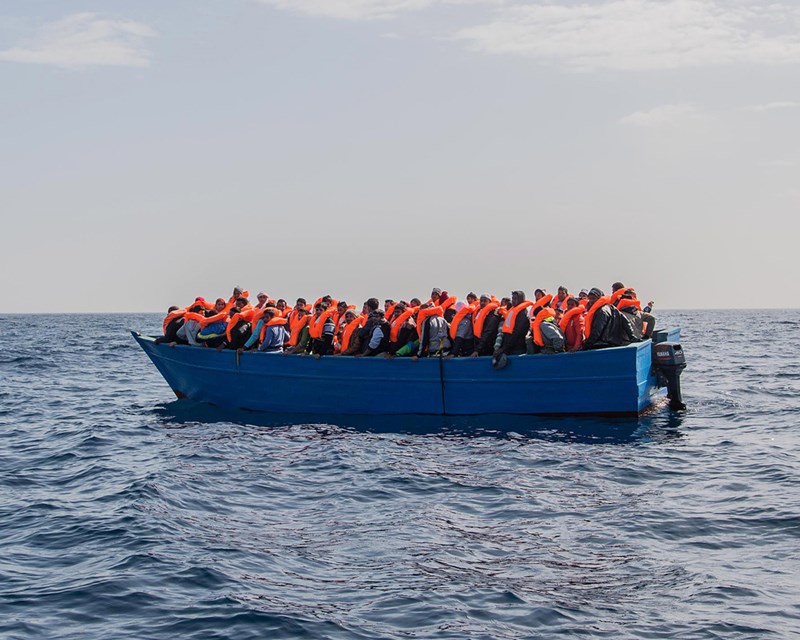Two refugee-led organisations based in the Middle East have been named among a group of grassroots nonprofits chosen to receive a share of more than $24m in philanthropic prize funding. The Larsen Lam ICONIQ Impact Award has given $10m to the Resourcing Refugee Leadership Initiative, a coalition of refugee-led organisations (RLOs), to help provide durable solutions for refugees.
The five-member group includes Basmeh & Zeitooneh, which works with Syrian refugees in Lebanon; St. Andrew’s Refugee Services (StARS), a Cairo-based organisation supporting displaced people from more than half a dozen countries in the region; and three other RLOs in Uganda, Colombia and Indonesia.
Each member of the coalition will receive up to $2m to spend on programming as well as capacity building, to help them tap new funding streams usually reserved for more established and international NGOs.
“With this grant, the coalition will have the capacity to fund long-lasting community solutions, rather than short-term projects that often miss the mark,” explained Mohamed Ahmed, programmes director at StARS in Egypt. It was also, he said, “a way for donors to overcome the structural complexities of funding RLOs directly”.
A third regional initiative, Unlocking Skilled Migration Solutions for Refugees, which connects refugees in Lebanon and Jordan with international employers and is led by Talent Beyond Boundaries, will receive $1.25m.
The remainder of the $24.3m prize pot will be distributed to NGOs working with refugees in Africa and the US.
Cecilia Conrad, CEO of Lever for Change, a nonprofit affiliate of the John D. and Catherine T. MacArthur Foundation which organised the competition, said: “In this moment of global reckoning and social upheaval, it is critical for philanthropy to be bold and daring. By investing in these inspiring ideas, donors have an opportunity to improve the lives of displaced people for generations to come.”
According to the latest data from UK-based thinktank Development Initiatives, in 2019, just 2.1 per cent of international humanitarian assistance passed directly to local and national actors. The rest went to multilateral institutions, UN agencies, and international NGOs, who then subcontracted smaller, local entities to deliver programmes on a case-by-case basis.
Frustrated by this uneven share, there are growing calls for new types of funding models to decolonise aid. Advocates for the so-called localisation agenda say it is better to support local and national organisations, such as those led by refugees or other marginalised communities, because it gives recipients more say in how aid money is spent.
It also helps to ensure that programming reflects grassroots needs, as opposed to top-level policy preferences based on short-term funding cycles, which are unable to deliver durable support.
By flowing money directly to the RLOs and other grassroots initiatives, the Larsen Lam ICONIQ Impact Award seeks to upend traditional aid funding models and encourage bottom-up development.
Diana Essex-Lettieri, vice president and COO of Asylum Access, a US-based advocacy group which oversees the Resourcing Refugee Leadership Initiative, described the $10m prize as “a game-changer”.
The funding will “help scale outstanding RLOs around the world and increase the representation and inclusion of refugees in the design of refugee solutions at national, regional and global levels,” she said.





